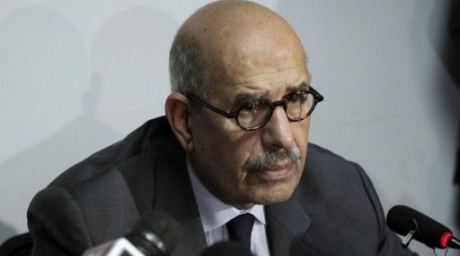After voters had queued up to cast their votes in the second stage of the controversial constitutional referendum on Saturday, many columnists condemned the growing polarization pervading Egyptian society today. Instead of uniting Egyptians, the constitution crisis has pitted citizens against each other according to their political and religious inclinations. Op-ed columnists explored this growing division asked “what comes next?”
For the sake of stability
Mohamed Salmawi
Al-Masry Al-Youm newspaper
Al-Masry Al-Youm op-ed writer Mohamed Salmawi called upon his readers to vote against the constitution, which he believes will lead to more polarization in Egypt. He argued that the current constitution will pave the way for the Islamists to dominate the country even more and will also marginalize the minorities.
The constitution differentiates between men and women, Muslims and Christians and does not grant the right of freedom of belief to everybody, wrote Salmawi. Because of fraud and forgery he claimed was pervasive during the first round of the referendum, Salmawi asked Egyptians to vote ‘No’ to the constitution in the second phase.
Salmawi cited a Los Angeles Times article published on 13 December that said the constitution could never contribute to achieving stability in Egypt. It will rather add to the already existing atmosphere of confusion and push the country to more division, he explained.
Through the constitution, he continued, the Muslim Brotherhood tends to exercise more control over Egypt and leave no space for any of the opposing political powers striving to live in the scene. This constitution does not represent anyone but the brotherhood, Salmawi claimed. In order for Egyptians to achieve stability, he surmised, people have to vote against the constitution and then request a new one that fairly represents all segments of the society.
Egypt’s decision: a matter of life or death
Emad Al-Din Adeeb
Al-Watan newspaper
Preventing Egyptians from splitting up is more important than passing the constitution itself, said Emad Al-Din Adeeb, an op-ed writer for Al-Watan Newspaper. If the constitution is a sign of political and social accord which regulates the relationship between the society and the state, wrote Adeeb, all articles in the current constitution will be meaningless, if divided between Egyptians.
The writer warned against the dangerous polarization status in the society that pushed colleagues of one work place to clash over their different political views, and members of one family to fight over their views of Shari’a. Suddenly, Egyptians are fractured into portions of Islamists and non-Islamists, Adeeb said.
He explained that even in evening TV talk shows, some guests refused to appear in the program if other invited guests represented an opposing political inclination. Adeeb criticised how the society clearly distinguishes between a Muslim and a Copt or between veiled and non-veiled women.
He continued saying the constitution crisis led Egyptians to discover the dilemma of intolerance and their inability to adjust to different political views. Adeeb asked what will happen after this division. Do we just decide to live in peace and harmony, he ponders, or are we choosing to proceed with our internal clashes and destroy a state that goes back to more than 7,000 years?




